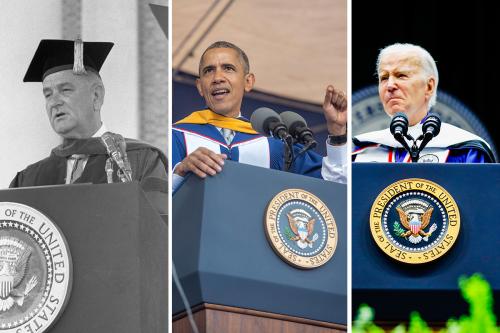WASHINGTON –The Howard University Clinical Law Center submitted comments to the Department of Housing and Urban Development (HUD) in response to a proposed rule that would severely constrain a critical tool for confronting housing discrimination. The new rule would alter the interpretation and use of “disparate impact” under the Fair Housing Act (FHA) of 1968, weakening a vital anti-discrimination law.
The Howard University School of Law and the Clinical Law Center join thousands of advocates, civil rights groups, and experts who submitted comments and expressed overwhelming opposition. In a letter submitted to HUD, Howard Law School student attorneys and faculty experts warned the federal agency that this new rule threatens the law center’s clients, as well as the students working in the center, many of whom have contended with the kinds of discrimination the FHA law is meant to prevent.
“Our public comment is unique because it was drafted by law students of color, each of whom has personally felt the effects of racial discrimination including, in many cases, housing discrimination,” said Valerie Schneider, professor of law and supervisor of the Fair Housing Clinic at Howard Law. “Most of the Clinical Law Center’s clients are poor and the cause of their poverty can often be traced to the type of housing discrimination that the Fair Housing Act aims to prevent.”
Included in the Civil Rights Act of 1968, the FHA was passed in response to findings of racial segregation and unequal housing and economic conditions in inner cities. Desegregation laws led public and private entities to adopt a variety of alternative methods for preventing integration, which led predominantly minority neighborhoods to be denied municipal services, while white neighborhoods reaped the benefits. In its comments, the Clinical Law Center argues that the proposed rule ignores the pervasive and ongoing nature of policies and practices like these that still have a discriminatory effect across the country.
According to Howard Law School students and faculty, Washington, D.C. is no exception. In its comments, the Clinical Law Center says the “Proposed Rule assumes that policies and practices that are facially neutral, but have a discriminatory effect are no longer a force in our society.” But these policies have a disproportionate impact on protected classes of individuals, including the communities Howard Law student attorneys interact with in Washington, D.C., where gentrification is causing low-income residents to be displaced at some of the highest rates in the country.
According to the Clinical Law Center’s letter to HUD:
“...in Washington, D.C., the vast majority of Housing Voucher recipients are racial minorities. There is also evidence that racial minorities face unequal access to financial systems, including credit. According to the Consumer Financial Protection Bureau, ‘Black consumers, Hispanic consumers, and consumers in low-income neighborhoods are more likely to have no credit history or not enough credit history to produce a credit scored.’ Notwithstanding these realities, landlords in the D.C. area impose arbitrary credit requirements on voucher holders even if the voucher covers 100% of the rent. They also require applicants to have a specific income and do not count vouchers as income. As a result of these policies, Black residents are effectively barred from housing they could otherwise afford.”
Among other things, the Clinical Law Center is concerned specifically with language in the proposed rule that increases the burden of proof plaintiffs are required to show to allege disparate impact discrimination. This would weaken the FHA’s original intent of prohibiting not only individual “incidences of intentional discrimination,” but policies and practices that have racially disparate effects.
As one of the nation’s oldest historically black colleges and universities, Howard Law has long held the defense of human rights, equality, and dignity at the heart of its educational practice. Howard Law alumni and affiliates have been instrumental in shaping the country’s agenda for civil rights through extensive scholarship, litigation, and human and civil rights advocacy. For example, Howard alumnus Justice Thurgood Marshall (33’) was one of the lead attorneys for the plaintiffs in Brown v. Board of Education. The Clinical Law Center continues in the light of this very legacy. As the hub for legal practice, training, and social justice initiatives at Howard Law, the Clinical Law Center houses seven live-client clinics that give students an opportunity to receive a high-quality of training while providing civil rights-oriented legal services to underserved individuals.
“This project [is] significant because basic housing is one of the most fundamental aspects of human life,” said Daniel Henry, a student attorney in Howard Law’s Human and Civil Rights Clinic. “If people are wrongfully denied access to adequate housing and have no real opportunity to redress those problems, it could create a spiral effect for some of the most vulnerable members of our community.”
For more information about the Howard University Clinical Law Center, visit www.law.howard.edu.
Photo: Clinical Law Center students from left to right- Kendall Cunningham, Maya Perry, Gregory Brown (standing in the back), Daniel Henry, Pedro Alfonso.
###
About Howard University
Founded in 1867, Howard University is a private, research university that is comprised of 13 schools and colleges. Students pursue studies in more than 120 areas leading to undergraduate, graduate and professional degrees. The University operates with a commitment to Excellence in Truth and Service and has produced four Rhodes Scholars, 11 Truman Scholars, two Marshall Scholars, one Schwarzman Scholar, over 70 Fulbright Scholars and 22 Pickering Fellows. Howard also produces more on-campus African-American Ph.D. recipients than any other university in the United States. For more information on Howard University, visit www.howard.edu.
Media Contact: Misha Cornelius, misha.cornelius@howard.edu




